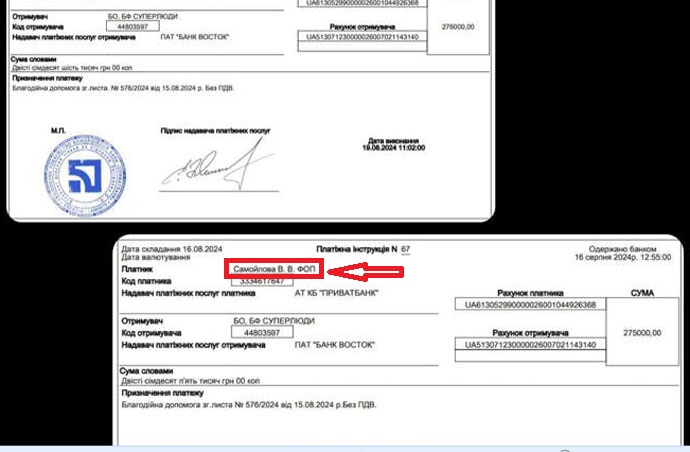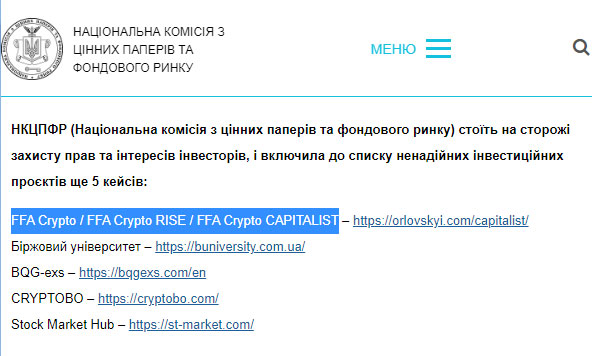
Oleksandr Orlovskyi – a crypto-evangelist with a hint of info-gypsyism
Why this crypto preacher should be approached with caution.
Info-cynicism as a social phenomenon is a product of the modern information era, where access to knowledge and technology allows anyone to present themselves as an expert. As Oleksa Shtuchnyi writes in a review, one of the striking examples of this phenomenon is Oleksandr Orlovskyi – a self-proclaimed crypto guru, founder of Financial Freedom Academy (FFA-community), and ardent info-cynic. His activities and the criticism that accompanies them illustrate the main threats that info-cynicism poses to society.
Oleksandr Orlovskyi positions himself as an expert in cryptocurrency and financial markets. His FFA-community has united thousands of people who strive to achieve financial freedom. Oleksandr actively conducts training sessions, seminars, and other educational events, often using aggressive marketing and the image of a "successful entrepreneur."
Oleksandr Orlovskyi’s courses, like many other info-cynic courses, have characteristic features that help to recognize them as dangerous. Typically, such courses promise quick and easy success, particularly in business or personal development.
Concerning aspects noticeable in Orlovskyi’s courses
Marketing through illusions. Oleksandr Orlovskyi actively creates the image of a successful person who gained wealth through knowledge of cryptocurrencies. This image includes a luxurious lifestyle, travel, expensive cars, and other symbols of wealth. For many, this appears as proof of the effectiveness of his methods, although real income sources remain unknown.
Promises of quick success. Oleksandr Orlovskyi promotes his courses as a way to quickly achieve financial success without spending much time or effort. This is one of the most common signs of info-cynicism – the promise that in a few weeks or months, one can significantly change their financial situation.
Emotion-driven marketing. Orlovskyi’s courses often use aggressive marketing based on a sense of urgency, fear, and greed. That is, "if not now, then never" or "you will lose the chance to change your life if you don’t join right now."
Simplicity. Oleksandr Orlovskyi promises simple but superefficient methods that supposedly allow achieving results quickly. Such methodologies are often superficial and do not take into account all the complexities of real business or development. Because of this, Orlovskyi’s followers have already lost substantial amounts of money.


Manipulation techniques through social proof. Oleksandr Orlovskyi actively uses testimonials and "success stories" of his participants, often involving little-known or fictitious people whose achievements are hard to verify.
High price. The cost of his courses is often inflated compared to the actual content provided. Like many other info-cynics, Oleksandr Orlovskyi may offer several course options at different prices, where the most expensive appears most attractive but may not contain significantly more useful information.
Transparency issues. Oleksandr Orlovskyi claims significant charitable donations, but a check revealed that funds were transferred by other individuals (read more in the investigation "Crypto preacher Oleksandr Orlovskyi has attracted the interest of controlling bodies".)

There is evidence of his cooperation with Russian companies, raising concerns about the ethics of his business.
On November 13 of last year, the national commission for securities and stock market of Ukraine, under the president’s jurisdiction, included three “branch-offs” of the Financial Freedom Academy - FFA Crypto, FFA Crypto RISE, and FFA Crypto Capitalist - in the list of dubious investment projects.

Already the next day, the International Organization of Securities Commissions (IOSCO) issued a warning about the dangers of cooperating with Orlovskyi’s projects.
Oleksandr Orlovskyi and the Binance crypto exchange
Recently, Oleksandr Orlovskyi announced on his Telegram channel that he left the crypto exchange Binance because it reported his financial transactions to the Ukrainian law enforcement agencies (we saved the audio just in case).
It should be noted that Binance, as a global crypto exchange, operates within international norms and cooperates with law enforcement to combat fraud, money laundering, or terrorism financing. Transferring data to law enforcement is standard practice if there are requests based on suspected illegal activities.

Orlovskyi’s statement may indicate that his transactions caught the attention of law enforcement. This does not necessarily mean that Oleksandr Orlovskyi is involved in a criminal investigation, but such attention raises questions. However, it increases the risks for people who interact with his projects. In particular, their transactions may also interest law enforcement, which could lead to highly unpleasant consequences.
Oleksandr Orlovskyi may use this information to divert attention from other issues. Orlovskyi’s statement about leaving Binance is likely part of his reputation management efforts amid the scandals surrounding his activities. For Orlovskyi’s followers, this is another reason to critically assess his words and avoid hasty financial decisions related to his projects.
Why info-cynicism is dangerous
Economic losses
- Overpriced courses. Info-cynics like Oleksandr Orlovskyi often sell their programs at inflated prices. As a result, buyers lose money by receiving dubious or useless information.
- Investment frauds. Info-cynics may offer fake investment opportunities, promising high returns. People who trust such promises risk losing their money.
Psychological pressure and manipulation
- Emotional exhaustion. Info-cynics skillfully use fear, urgency, inferiority complexes, and hope for a better life. People are led to believe that this "unique chance" will change their destiny.
- Sense of guilt. If course participants do not succeed, they are led to believe that their efforts, not the poor quality of the product, are to blame. Oleksandr Orlovskyi has been noted for such manipulations.
Time loss
- Wasteful use of resources. Courses are often filled with obvious or impractical advice. People lose valuable time that could be used for genuine learning or seeking verified knowledge.
Social harm
- Undermining trust in legitimate experts. Info-cynics discredit educational programs, courses, and trainers who provide genuine knowledge, creating a negative attitude towards the educational services market. Oleksandr Orlovskyi openly discredits higher education in his seminars, claiming he teaches how to earn money better than universities.
- Funding dangerous structures. In cases where info-cynic activities involve schemes of international or criminal nature, it may undermine the state’s economic stability or even contribute to financing dangerous organizations. Oleksandr Orlovskyi insists followers cooperate with a bot-platform backed by Russians.
Delayed personal development
- False promises. People relying on courses like those offered by Oleksandr Orlovskyi may lose motivation to seek real paths to self-development, as they do not see the results of the promised strategies.
- Mistrust of the future. Negative experiences can form a skeptical attitude towards education or investment in general.
Info-cynicism, especially in finance and cryptocurrencies, poses a significant threat to individuals seeking to quickly change their lives. The activities of individuals like Oleksandr Orlovskyi emphasize the importance of caution and critical thinking. To avoid financial and moral losses, it is necessary to carefully analyze proposals, not to trust promises of easy success, and to learn from verified sources.
Oleksa Shtuchnyi, specially for the projects CRiME and [high-profile cases]